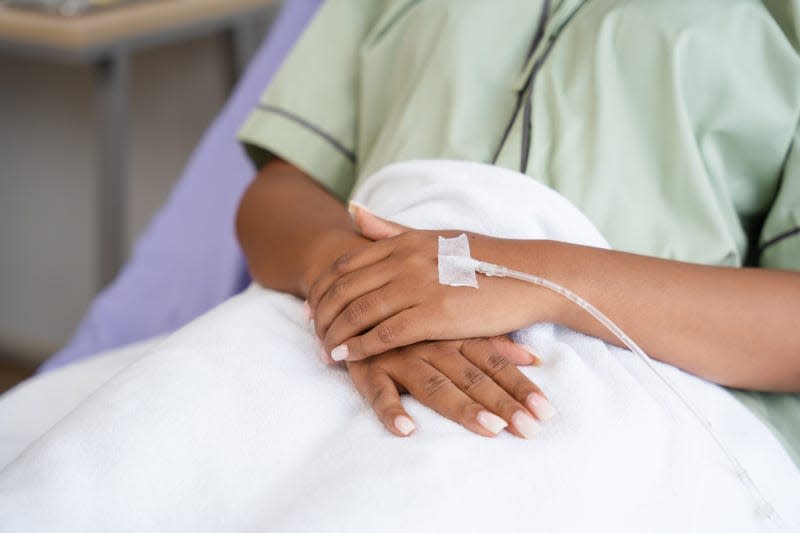The Ohio Black Woman Criminalized For Miscarriage Tells Her Story

Brittany Watts was in her second trimester when tragedy struck. Alone in her bathroom, the 33-year-old miscarried her fetus over the toilet. Desperate and disoriented from a potentially life-threatening miscarriage, according to the Post, she scooped bits of the fetal tissue, blood, and other bodily fluids out of the toilet and deposited it outside her garage. She flushed what was left.
She would eventually be admitted to the hospital, where, still connected to an IV, she would be questioned by police for over an hour. Weeks later, Watts was arrested and charged with felony abuse of a corpse for how she dealt with the remains of her non-viable fetus.
Read more
The Seahawks-Eagles showdown isn't your average Monday night
It's Been 2 Months. Why Can't NASA Open the Asteroid Sample Container?
Hyundai Will Sell 70 Street-Legal Examples Of Its Dreamy Angular EV Sports Car: Report
If she’s indicted by the Trumbull County grand jury investigating her case, Watts could face up to a year in prison as well as a hefty fine.
While Watt’s case is extreme, it’s not an isolated incident.
Over the last 16 years, Pregnancy Justice tracked nearly 1,400 cases of pregnancy criminalization. Most of the allegations centered around substance use during pregnancy, including Marijuana usage. Black Americans, particularly, are overrepresented in arrests for pregnancy criminalization, with the primary targets for arrest being poor white and poor Black Americans.
As the data suggests, this isn’t a problem that arose after the Dobbs decision, but it’s undeniably heightened the risks. “The policing and criminalizing of pregnant people is not new, but never before have we had such a comprehensive picture of the full scope of how they—especially those who are poor and living in the South—are losing their autonomy, their rights, and their freedoms because of police, prosecutors’ and politicians’ desire to control pregnancy,” said Dorothy Roberts, professor at Penn Carey School of Law and author of “Killing the Black Body,” in a statement about the Pregnancy Justice data.
Watts is still in limbo as she awaits the results of the grand jury’s investigation.
“I pray that my story makes a difference and no other woman ever faces this reality,” she told the Washington Post. “However, if it comes to that, she has my support.”
More from The Root
Marvel Star Jonathan Majors Found Guilty of Reckless Assault
Watch John Oliver Spend 30 Minutes Talking About How Much Elon Musk Sucks
Mark Zuckerberg’s $100 Million Bunker Sounds Right Out Of A Video Game
Hasbro Unvaulted Some of Its Rarest Toy Projects, and Sold Them Out Immediately
Sign up for The Root's Newsletter. For the latest news, Facebook, Twitter and Instagram.

